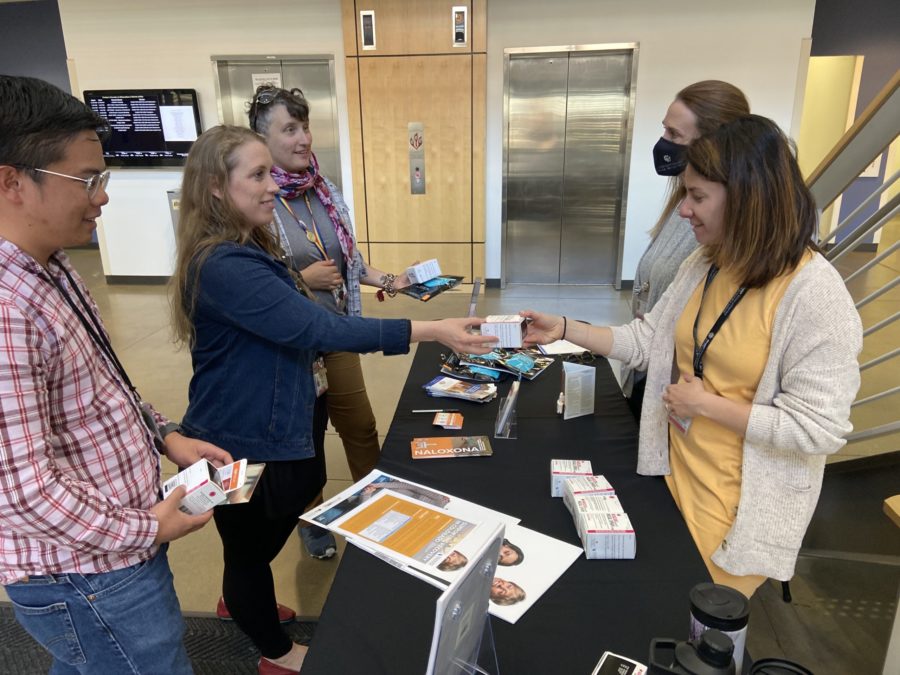Consortium helps CU Anschutz students save lives with naloxone
Students at the CU Anschutz Medical Campus spend years learning how to save lives. This week, they learned how to stop opioid overdose deaths by using naloxone. It might be their easiest lesson.
The campus hosted two events on April 26 to distribute naloxone and share information with students. Staff from the Consortium handed out 60 boxes of naloxone and explained to dozens of students how to recognize an opioid overdose, how to get naloxone, and how the use it.

Interest was high among the students, who will go on to be pharmacists, physicians, nurses and other health professionals and researchers. So too was demand for Narcan—the Consortium’s supply of naloxone ran out less than halfway through each event.
The success of the event shows the potential on-campus events can have in educating students and providing them with naloxone. The Consortium already is discussing future events with other CU campuses and universities and colleges in Colorado.
CU Anschutz was a logical campus for a pilot event. CU Anschutz is the home of the Consortium, which is part of the Skaggs School of Pharmacy and Pharmaceutical Sciences. The event was jointly sponsored by the schools and colleges on the medical campus, including the School of Medicine and College of Nursing.
The campus also is the home of UCHealth’s University of Colorado Hospital. Students and faculty members who work in the hospital as physicians and nurses have firsthand knowledge of the overdose crisis.
“Our healthcare providers see its devastating effects in their emergency departments and clinics on a daily basis,” Chancellor Don Elliman said in a campuswide message.
Elliman praised the “meaningful impact” the Consortium has had by working with nonprofits, government agencies and providers, as well as community stakeholders
Elliman called on students, faculty, and staff to work to stem the fentanyl crisis.
“Our campus had long been part of efforts to address the opioid epidemic devastating families and communities across Colorado and around the country,” Elliman said. “We are well-positioned to help fight the growing fentanyl crisis facing us today.”